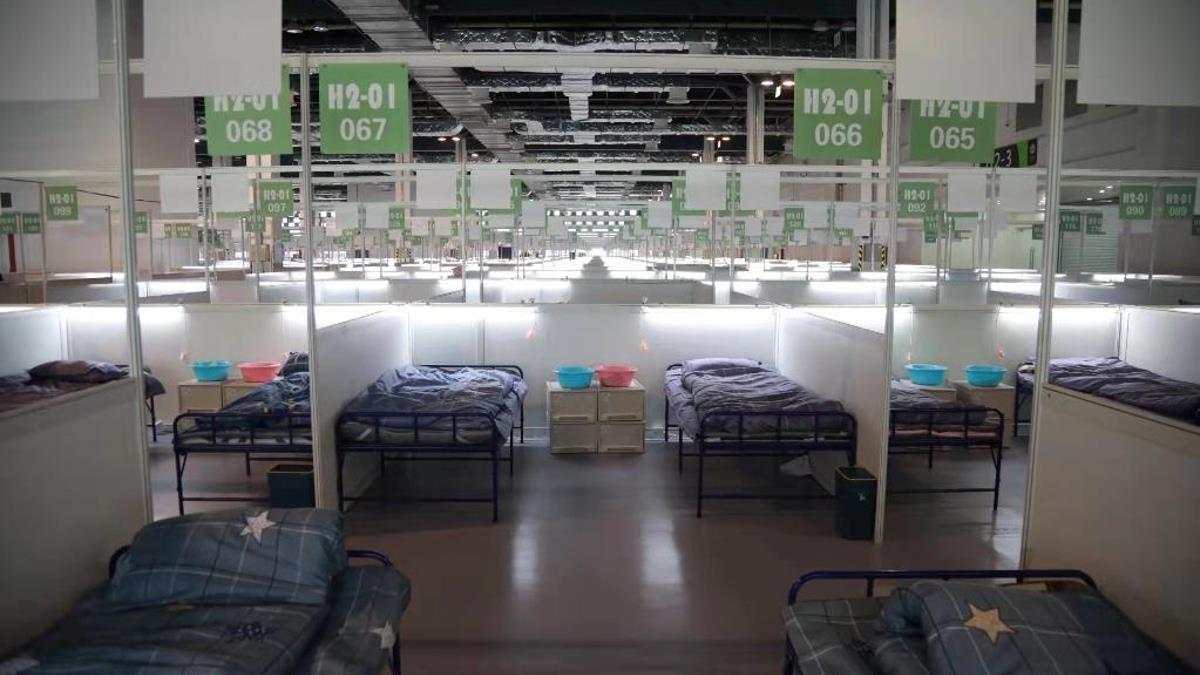(MENAFN- Asia Times)
Shanghai has implemented anti-epidemic measures amid a rising number of local infections, fearing it will repeat Hong Kong's tragic loss of life during its recent Omicron-fuelled outbreak.
In the seven days that ended Tuesday, Shanghai recorded 588 local infections plus 20,908 asymptomatic cases, according to the Shanghai Municipal health Commission. No new Covid-related deaths have been reported since an 83-year-old died in the city's first epidemic on April 7, 2020.
The number of infections in Shanghai, which started a nine-day lockdown in two stages on Monday, has so far maintained an upward trend, similar to what was seen in Hong Kong in early February before a huge epidemic wave broke out.
Whether Shanghai can contain the death toll will depend on its ability to triage patients, isolate elderly care homes, identify patients with rapid tests and source Covid medicines, said some medical experts.
When Shanghai reported four cases and 34 asymptomatic infections on March 14, it did not follow Shenzhen and lock down the entire city.
Instead, Shanghai authorities only sealed off some high-risk districts of the city of 25 million. But the number of infections has continued to grow over the last two weeks.
Last Sunday, Shanghai recorded 50 new cases and 3,450 asymptomatic infections, forcing the municipal government to lock down the eastern side of the city between Monday and Friday and the western side from Friday to April 1.
On Tuesday, the financial hub reported 326 new cases and 5,656 asymptomatic infections, compared with 96 new cases and 4,381 asymptomatic infections on Monday. The pattern is similar to Hong Kong's in mid-February before the special administrative region saw an exponential explosion of Covid infections later the same month.
As of Wednesday, 1.13 million people in Hong Kong have contracted Covid-19. A total of 7,493 have died in the latest Omicron-driven outbreak. Most of the deceased were people aged over 60 as more than 95% of elderly care homes reported virus outbreaks.
Citing mandatory test results in some residential areas, Chief Executive Carrie Lam said Tuesday that about 1.8 million people, or 25% of Hong Kong's population, could have been infected.
Ivan Hung Fan-ngai, a clinical professor of medicine at the University of Hong Kong, said more than 4 million people could have been infected as many did not report their cases. To avoid repeating Hong Kong's situation, Shanghai started to prepare earlier this month for its anti-epidemic fight.
On March 18, the Shanghai government announced plans to implement a“closed-loop” management system at elder care homes by requiring all workers to isolate themselves from the community, shutting down all the social centers that provide dine-in services for elderly people and delivering food directly to their homes.
Zeng Qun, deputy head of the Shanghai Civil Affairs Bureau, said 2,300 caretakers would deliver food and provide services to 6,000 elderly people in the city.

A quarantine camp in Shanghai. Photo: Xinhua
Wu Jinglei, director-general of the Shanghai Municipal Health Commission, said on March 19 that Shanghai had already started triaging Covid patients under the principle of“four early,” which refers to“early identification, early report, early isolation and early treatment.”
Wu said serious patients would be sent to specialized hospitals, mild patients would be sent to quarantine camps, while close-contact and recovered patients would stay home.
On March 11, China's National Health Commission said it had decided to“optimize its Covid test strategy” by using a rapid antigen test, along with the usual PCR test, to identify Covid patients as the Omicron variant was much more contagious than other mutant strains.
Wu Qianyu, an official with the Shanghai Health Commission, said Wednesday that since Monday 9.1 million people in eastern Shanghai had completed the first round of PCR tests, while 10.87 million people in the city's western districts had done rapid tests.
On March 14, the National Medical Products Administration approved the use of Pfizer's Paxlovid and the China-made medicine BRII-196 for Covid patients. On Tuesday, the Shanghai government said it would boost the imports of foreign Covid vaccines and medicines.
It remains to be seen whether all these measures will help Shanghai avoid deaths, but the Shanghai experience will surely become a showcase to other Chinese cities on how to maintain“dynamic zero infections” while minimizing economic costs.
On Tuesday, the Shanghai government announced 21 new measures including tax and house rent reductions and subsidies to help local companies during the city's anti-epidemic battle.
Local exhibition and conference industries will also receive subsidies if their events are affected by the pandemic and lockdown. The city's state-owned enterprises will be exempt from house rents for three months, while companies within the medium- and high-risk areas will have their half-year rents exempted.
Ruan Qing, the deputy director of Shanghai's Development and Reform Commission, said local companies and industries would save a total of 140 billion yuan (US$21.98 billion) of taxes and fees this year due to the new measures.
Read: Shanghai lockdown rings China economy alarm
Follow Jeff Pao on Twitter at @jeffpao3
MENAFN30032022000159011032ID1103938844
Legal Disclaimer:
MENAFN provides the information “as is” without warranty of any kind. We do not accept any responsibility or liability for the accuracy, content, images, videos, licenses, completeness, legality, or reliability of the information contained in this article. If you have any complaints or copyright issues related to this article, kindly contact the provider above.